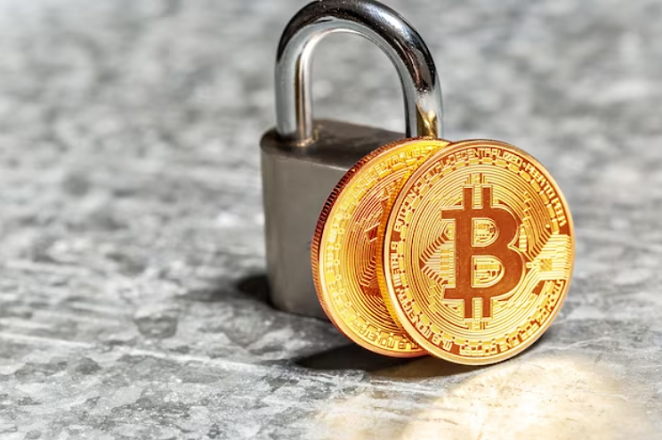In recent years, cryptocurrencies have completely changed how we think about money and transactions. There is no doubting that the emergence of cryptocurrencies like Bitcoin, Ethereum, and Litecoin has brought up new opportunities and difficulties for both individuals and companies, whether you are an experienced investor or just a casual user.
There are risks associated with cryptocurrencies, despite the fact that their advantages—quick transactions, minimal transaction fees, and improved privacy—are obvious. It’s more crucial than ever to make sure that your digital assets are safe and secure because of the volatile value of cryptocurrencies and the ongoing threat of security breaches.
Protection for cryptocurrencies comes into play here. You can protect your investments and reduce your risk using a range of techniques, including advanced security technology and secure storage solutions. In this essay, we’ll examine the value of protecting cryptocurrencies and talk about new technological and governmental trends that could influence the direction of the sector. So let’s jump into the thrilling world of safe and secure bitcoin security, buckle up, and grab your digital wallet!
Current Cryptocurrency Protection Challenges
Despite all of the advantages of cryptocurrencies, there are a number of issues that need to be resolved in order to guarantee their safety and protection. The ongoing risk of security lapses and attacks, which may cause huge losses for cryptocurrency owners, is one of the main problems.
From the historic Mt. Gox hack in 2014 to the more recent hack of the cryptocurrency exchange Binance, there have been many instances of high-profile security breaches and hacks in the cryptocurrency sector in recent years. These instances demonstrate the necessity of putting strong security measures in place to safeguard digital assets as well as the value of being aware and knowledgeable about the most recent security best practises. To guarantee that consumers’ digital assets are safe and secure as the bitcoin sector develops and matures, it will be crucial to address these issues and create workable solutions.
The Value of Protecting Cryptocurrency in a Secure and Safe Way
Protecting cryptocurrencies in a safe and secure manner is crucial for both individuals and organisations. Individuals put a lot of effort and money into cryptocurrencies, and if these digital assets are not protected, they could suffer big losses. To protect their assets and reputation, firms who accept bitcoin as payment or retain it as an investment must also make sure that they have strong security measures in place.
Without sufficient bitcoin protection, there could be serious repercussions. Along with monetary damages, security breaches and hacks can harm a company’s brand, lose customers’ faith, and even have legal ramifications. It’s more crucial than ever to take the appropriate precautions to secure your digital assets in today’s fast-paced digital world and to make sure you are ready to confront the difficulties of the cryptocurrency landscape.
Protection Techniques for Cryptocurrencies
There are various strategies for protecting cryptocurrencies, each having pros and cons of their own. For instance, cold storage includes keeping digital assets offline, as on a paper wallet or USB drive, which can add an added degree of security. On the other hand, multi-factor authentication asks users for different forms of identity before granting access to their digital assets, which can assist prevent unauthorised access.
Another widely used technique of protecting cryptocurrencies is by using hardware wallets, which offer an external device for storing private keys and can be turned off when not in use. While these techniques might be useful for safeguarding digital assets, they also have limitations. For frequent transactions, cold storage can be inconvenient, multi-factor verification can be time-consuming, and hardware wallets can be pricey.
The most effective cryptocurrency protection strategy will ultimately depend on personal preferences and demands. Users can decide the best way to safeguard their digital assets in a quick-paced and constantly-evolving business by carefully weighing the benefits and drawbacks of each strategy.
New Technologies to Protect Cryptocurrencies
New technologies are being created all the time to strengthen cryptocurrency security, with an emphasis on boosting security and lowering the risk of fraud and hacking. One such technology is decentralised exchanges, which aims to boost exchange security by doing away with the requirement for a central authority to allow transactions. Blockchain-based security solutions, which take advantage of the decentralised and immutable characteristics of blockchain to improve security for digital assets, are another promising technology.
By providing greater security, transparency, and privacy, these cutting-edge technologies have the potential to revolutionise the way that cryptocurrencies are protected. Businesses and individuals can better secure their digital assets and lower their risk of loss due to security breaches and other vulnerabilities by utilising the benefits of blockchain and other cutting-edge technology. It will be fascinating to watch how these cutting-edge technologies are embraced and incorporated into the larger ecosystem as the Bitcoin business continues to develop and grow.
Laws and Regulations in the USA Regarding Cryptocurrency Protection
There are numerous rules and legislation governing cryptocurrency protection in the USA. These include laws controlling the taxation of bitcoin transactions as well as rules regarding know-your-customer and anti-money laundering processes. The Securities and Exchange Commission (SEC) has also released guidelines regarding the classification of cryptocurrencies as securities, which may have an impact on their regulation and protection.
These rules and laws are crucial for maintaining the secure and safe use of cryptocurrencies, but they may also have an effect on how cryptocurrencies are protected in the future. It will be crucial to strike a balance between preserving digital assets and encouraging innovation and growth as the industry develops and grows. Individuals and organisations can manage the complexity of the cryptocurrency ecosystem and make sure that their digital assets are safe and secure by being educated and involved with the most recent regulatory developments.
Final Thoughts on the Future of Cryptocurrency Protection
In the current digital era, cryptocurrency protection is of the utmost importance. It’s critical to make sure that sufficient security measures are in place to secure digital assets in light of the rise of cryptocurrencies and their increasing popularity. We covered a number of security measures for cryptocurrencies, each with pros and cons, including as cold storage, multi-factor authentication, and hardware wallets.
With greater security, transparency, and privacy, emerging technologies like decentralised exchanges and blockchain-based security solutions have the potential to revolutionise cryptocurrency protection. However, as the industry develops, it’s also critical to keep up with the latest US legislation and regulations addressing cryptocurrency protection, as these might have a big impact on the sector’s future.
Future advancements in the realm of cryptocurrency protection can be expected, with new technological and governmental changes influencing the environment. Both individuals and organisations must keep up with these developments and take the appropriate precautions to preserve their digital assets in order to be well-equipped to handle the opportunities and difficulties presented by the cryptocurrency ecosystem.
Read More You May Like:
- Safeguarding Your Crypto Strategies for Maximum Security
- Shielding Your Cryptocurrency The Ultimate Security Checklist
- The Importance of Cryptocurrency Security What You Need to Know
- Crypto Security 101 Tips for Securing Your Digital Assets
- Fortifying Your Crypto Fortress The Latest Security Measures














Post Comment